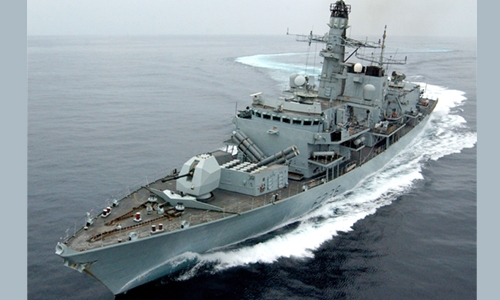Britain will stay in Hormuz ‘for as long as we need’: Fleet Commander
British frigates are in the Strait of Hormuz to stabilise commercial shipping and “we will stay there, of course, for as long as we need,” said a top British navy official said yesterday. Vice Admiral Jerry Kyd, the Royal Navy’s Fleet Commander, told Reuters it had “committed quite a few ships, aircraft and other capabilities to the Strait of Hormuz area because it’s a live issue”.
Britain’s decision to send warships to the Strait of Hormuz has helped to stabilise commercial shipping through the critical chokepoint weeks after Iran seized a UK-flagged tanker in the region, said Kyd, who is responsible for commanding all the Royal Navy’s operational elements. “We are the British Royal Navy and we look to support and protect our own ships.”
The UK-flagged tanker Stena Impero was detained by Iran’s Revolutionary Guards in the Strait of Hormuz on July 19 for alleged marine violations two weeks after Britain had detained an Iranian tanker off Gibraltar. That vessel was released in August. “We have deployed assets for the very reason to stabilise,” he said on the sidelines of the London International Shipping Week conference. “I am really confident that we are in a good space.
We are not letting our guard or our vigilance down.” The Royal Navy last week said that nearly 90 British merchant ships - representing close to 6 million tonnes of cargo - had been “safely shepherded” through the Strait of Hormuz by its warships over the past two months. It said the HMS Montrose frigate was forced to fire flares on more than a dozen occasions to warn off Iranian forces.
GPS Disruption
While it did not mention Iran directly, the US military’s Central Command last month said that ships had reported interference to their GPS navigation systems when sailing through the Strait of Hormuz region as well as jamming of other onboard communications “with little to no warning”. Kyd said there was an “absolute threat to safe navigation” from GPS interference in areas such as the Middle East Gulf, the Mediterranean and Baltic regions.
Related Posts

